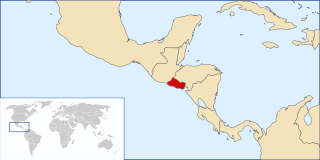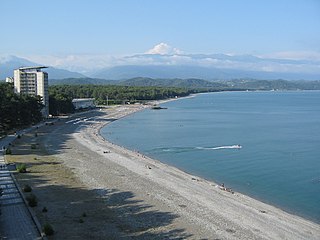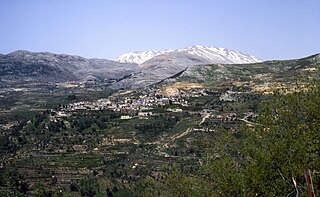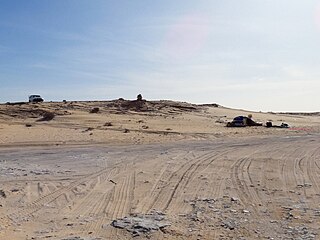
United Nations Security Council resolution 693 of 20 May 1991 established the United Nations Observer Mission in El Salvador to verify the military-led government of El Salvador and the militia Farabundo Martí National Liberation Front's compliance with human rights in accordance with an agreement both parties signed in San Jose in 1990.

United Nations Security Council resolution 730, adopted unanimously on 16 January 1992, after recalling resolutions 719 (1991) and 729 (1992) the Council approved a report by the Secretary-General from 14 January, and decided to terminate the mandate of the United Nations Observer Group in Central America (ONUCA) with effect from 17 January 1992.

United Nations Security Council resolution 772, adopted unanimously on 17 August 1992, after recalling Resolution 765 (1992) concerning the Boipatong massacre in South Africa and a report from the Secretary-General, the Council authorised Boutros Boutros-Ghali to deploy observers to the country after concerns raised in the report, known as the United Nations Observer Mission in South Africa.

United Nations Security Council resolution 783, adopted unanimously on 13 October 1992, after recalling resolutions 668 (1990), 717 (1991), 718 (1991), 728 (1992), 745 (1992) and 766 (1992) and noting a report by the Secretary-General Boutros Boutros-Ghali, the council welcomed the progress the United Nations Transitional Authority in Cambodia (UNTAC) had made in Cambodia in accordance with the Paris Agreements, however it recognised various security and economic concerns facing UNTAC.

United Nations Security Council resolution 791, adopted unanimously on 30 November 1992, after recalling resolutions 637 (1989), 693 (1991), 714 (1991), 729 (1992) and 784 (1992), the Council approved a decision by the Secretary-General Boutros Boutros-Ghali to extend the mandate of the United Nations Observer Mission in El Salvador (ONUSAL) for a further six months until 31 May 1993.

United Nations Security Council resolution 830, adopted unanimously on 26 May 1993, after considering a report by the Secretary-General regarding the United Nations Disengagement Observer Force (UNDOF), the Council noted its efforts to establish a durable and just peace in the Middle East.

United Nations Security Council resolution 832, adopted unanimously on 27 May 1993, after recalling resolutions 637 (1989), 693 (1991), 714 (1991), 729 (1992), 784 (1992) and 791 (1992), the council noted a report by the Secretary-General Boutros Boutros-Ghali and enlarged the mandate of the United Nations Observer Mission in El Salvador (ONUSAL) to include the observation of the electoral process.

United Nations Security Council resolution 881, adopted unanimously on 4 November 1993, after reaffirming resolutions 849 (1993), 854 (1993), 858 (1993) and 876 (1993) concerning the Georgian–Abkhazian war, the Council extended the mandate of the United Nations Observer Mission in Georgia (UNOMIG) until 31 January 1994.

United Nations Security Council resolution 882, adopted unanimously on 5 November 1993, after reaffirming resolutions 782 (1992) and subsequent resolutions on Mozambique, the council noted, in addition to positive developments in the country, that some aspects of the Rome General Peace Accords had not been implemented.

United Nations Security Council resolution 887, adopted unanimously on 29 November 1993, after considering a report by the Secretary-General Boutros Boutros-Ghali regarding the United Nations Disengagement Observer Force (UNDOF), the Council noted its efforts to establish a durable and just peace in the Middle East.

United Nations Security Council resolution 888, adopted unanimously on 30 November 1993, after recalling resolutions 637 (1989), 693 (1991), 714 (1991), 729 (1992), 784 (1992), 791 (1992) and 832 (1993), the council expressed concern at aspects of the situation in El Salvador and extended the mandate of the United Nations Observer Mission in El Salvador (ONUSAL) until 31 May 1994.
United Nations Security Council resolution 920, adopted unanimously on 26 May 1994, after recalling resolutions 637 (1989), 693 (1991), 714 (1991), 729 (1992), 784 (1992), 791 (1992), 832 (1993), 888 (1993), the council discussed the implementation of peace agreements in El Salvador and extended the mandate of the United Nations Observer Mission in El Salvador (ONUSAL) until 30 November 1994.

United Nations Security Council resolution 921, adopted unanimously on 26 May 1994, after considering a report by the Secretary-General Boutros Boutros-Ghali regarding the United Nations Disengagement Observer Force (UNDOF), the Council noted its efforts to establish a durable and just peace in the Middle East.

United Nations Security Council resolution 945, adopted unanimously on 29 September 1994, after reaffirming Resolution 696 (1991) and all subsequent resolutions on Angola, the Council extended the mandate of the United Nations Angola Verification Mission II until 31 October 1994 and discussed the implementation of peace agreements.
United Nations Security Council resolution 946, adopted on 30 September 1994, after reaffirming Resolution 733 (1992) and all of its subsequent resolutions on the situation in Somalia, the council extended the mandate of the United Nations Operation in Somalia II for a period of one month until 31 October 1994.

United Nations Security Council resolution 961 was adopted unanimously on 23 November 1994, after recalling resolutions 637 (1989), 693 (1991), 714 (1991), 729 (1992), 784 (1992), 791 (1992), 832 (1993), 888 (1993) and 920 (1994), the council discussed the implementation of peace agreements in El Salvador and extended the mandate of the United Nations Observer Mission in El Salvador (ONUSAL) for a final time until 30 April 1995.

United Nations Security Council resolution 968, adopted unanimously on 16 December 1994, after noting statements by the president of the security council and reports by the Secretary-General Boutros Boutros-Ghali on the situation in Tajikistan, the council established the United Nations Mission of Observers in Tajikistan (UNMOT) and addressed the process of national reconciliation in the country.

United Nations Security Council resolution 996, adopted unanimously on 30 May 1995, after considering a report by the Secretary-General Boutros Boutros-Ghali regarding the United Nations Disengagement Observer Force (UNDOF), the Council noted its efforts to establish a durable and just peace in the Middle East.

United Nations Security Council resolution 1002, adopted unanimously on 30 June 1995, after recalling resolutions 621 (1988), 658 (1990), 690 (1991), 725 (1991), 809 (1993), 907 (1994), 973 (1995) and 995 (1995), the Council discussed the implementation of the Settlement Plan in Western Sahara and extended the mandate of United Nations Mission for the Referendum in Western Sahara (MINURSO) until 30 September 1995.

United Nations Security Council resolution 1057, adopted unanimously on 30 May 1996, after considering a report by the Secretary-General Boutros Boutros-Ghali regarding the United Nations Disengagement Observer Force (UNDOF), the Council noted its efforts to establish a durable and just peace in the Middle East.

















